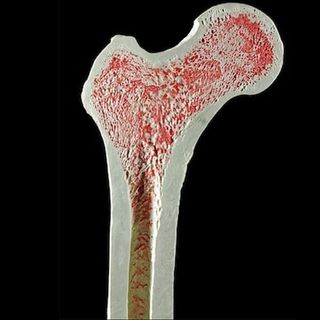In addition to psychiatric disorders, such as depression and anxiety, that most patients with ADHD are more likely to experience than the general population, a report published in the Journal of Attention Disorders has suggested that their chances of having physical ailments are higher too. These potentially co-existing conditions include metabolic disorders, viral pneumonia, disorders of white blood cells, kidney failure, hypertension, obesity, type I and II diabetes, migraine, asthma, atopic dermatitis (eczema), juvenile arthritis, and/or glaucoma.
ADHD, or Attention Deficit Hyperactivity Disorder, wherein a person finds it difficult to pay attention and control impulsive behaviors, affects approximately 2.5% of adults and 5% of children globally.
To reach the above conclusion linking ADHD with greater riskof poor physical health, researchers assessed 258,662 German children who were diagnosed with ADHD between ages 5 and 14 and compared their health with approximately the same number of children who did not have ADHD. Researchers found that 86% of children with ADHD were accompanied by at least one more physical ailment as compared to 40% of typical children who had a physical disorder. Additionally, of 864 conditions assessed, 370 of them, or 43%, were associated with ADHD. These included thehealth conditions mentioned above.
Another study also establishes the link betweenpoorer physical health and ADHD, finding obesity was more common in Dutch boys and girls who had ADHD than those who didn’t.
This research with Dutch students proposes a few reasons for the link. First, considering that hyperactivity and being impulsive are characteristics of people with ADHD, “a high degree of impulsiveness may lead to uncontrolled eating,” which may be one of the reasons causing people with ADHD to be more likely to be overweight. Second, people with ADHD have a heightened sense of immediate gratification and therefore, “availability of or exposure to easy (fast) food, for instance, may then more readily trigger snacking or impulse eating,” the same study states. Third, being easily distracted and having a reduced capability to plan and organize, people with ADHD can experience chaotic eating patterns, “raising the odds of becoming overweight,” the study also adds. It goes on to mention that those with ADHD are also vulnerable to addiction, and therefore, “it is possible that this population is then also at greater risk for food addictions.”
Related on The Swaddle:
New Study Links ADHD to Delayed Brain Development
To establish the link between ADHD and asthma, citing findings from a 2018 study, Reuters reported, “Overall, the analyses found that having either asthma or ADHD increased the risk of having the other condition by about 45% to 53%.”
The reason, said Dr. Samuele Cortese in an emailed response to Reuters, may be that, “there are common inflammatory alterations that make the brain of some children more prone to develop both ADHD and asthma.” She added, “It is also possible that sleep alterations, such as sleep-disordered breathing, increase the likelihood of having both asthma and ADHD. We need to test these and other possible explanations.”
Until the links between physical disorders and ADHD are further researched, with what is already available, researchers can say that poor physical health and ADHD are associated in some ways, even though how they are may not be very clear at this point. Therefore, “The results [from the current research] have direct implications for patient care, including fine-grained diagnostics and personalized therapy.”




